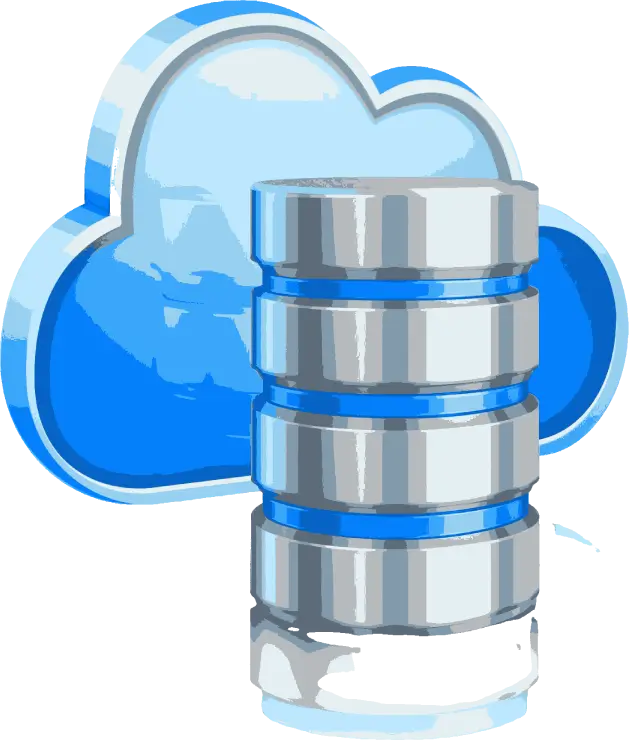Big data is nowadays an important factor influencing industries and business decisions and is currently an essential parameter in determining how a company can gain a competitive edge. Big data helps companies improve decision-making capabilities, predict trends, monitor operations, and gain deeper insight into customer behavior. Choosing the correct database is important for maximizing the benefits of using such data since it affects how successfully businesses handle, process, and evaluate their datasets.
The choice of Big Data databases has a major impact on data storage, accessibility, and analytical performance. Businesses need databases that can scale in terms of growing volumes of data, flexibility in accommodating diverse types of data, and advanced tools for real-time or batch processing. To answer these needs, leading databases have evolved with strong features catering to finance, health care, retail, and technology industries.
Here are the most comprehensive descriptions of the top Big Data databases that have proved to be extremely useful, reliable, and scalable for modern enterprises navigating data-driven operations.
. Apache Hadoop: The Backbone of Distributed Data Processing
Apache Hadoop is a veteran in the Big Data ecosystem and is famous for its ability to store and process huge volumes of data across distributed systems. This makes it strong and scalable enough for complex workflows.
Core Features:
- Scalability: Easily scales horizontally by adding more nodes.
- Ecosystem Support: Integrates seamlessly with tools like Apache Hive, HBase, and Spark.
- Cost-effectiveness: An open-source platform that reduces operational expenses for batch data processing.
Applications:
Hadoop is applied mainly in finance, retail, and health care for operations such as ETL workflows, log analysis, and historical data analysis. It also has utilities that are invaluable when very large volumes of unstructured data are handled.
. MongoDB: The Flexible Document-Oriented Database
MongoDB is designed by keeping in mind the flexibility and fastness. That is why its appropriate for applications that need immediate development and real-time access to data.
Core Features:
- Schema-Less Storage: Allows for storing data in a flexible JSON-like format.
- Horizontal Scalability: Distributes data across multiple servers through sharding.
- Advanced Querying: supports aggregation pipelines and text searches for enhanced analytics.
Applications:
MongoDB excels in systems that are real-time, especially on an IoT device level, through customer-facing dashboards to mobile applications, as integrating it with new environments seems to be easy.

. Amazon DynamoDB: Seamless Scalability for Real-Time Workloads
Amazon DynamoDB is a fully managed NoSQL database service of AWS. It is built to run low-latency, high-throughput applications. Its architecture serverless stands out, which appeals to teams and helps scale without worrying over infrastructure.
Core Features:
- Automatic Scaling: Adapts to changing traffic patterns to optimize performance and cost.
- Global Tables: Supports multi-region replication for high availability.
- AWS Ecosystem Integration: Works seamlessly with AWS tools like Lambda, S3, and CloudWatch.
Applications:
DynamoDB is used for real-time applications such as gaming leaderboards, fraud detection, and personalized recommendation systems.
. Azure Cosmos DB: The Database for Globally Distributed Systems
Azure Cosmos DB provides a powerful solution for applications that require global availability and low-latency performance. It supports multiple models, such as document-oriented to graph databases.
Core Features:
- Consistency Levels: Offers five consistency models to balance performance and accuracy.
- Global Replication: Ensures data availability with minimal latency across regions.
- Multi-API Support: Compatible with APIs for SQL, Cassandra, MongoDB, and Gremlin.
Applications:
This database is particularly effective for real-time personalization, supply chain management, and distributed systems requiring consistent performance.
. Google BigQuery: Redefining Data Analytics at Scale
Google BigQuery stands out for its serverless architecture, enabling organizations to perform advanced analytics without the overhead of managing infrastructure. Its tight integration with Google Cloud’s AI and ML tools amplifies its capabilities.
Core Features:
- Real-Time Insights: Processes petabyte-scale data in seconds.
- AI/ML Integration: Works with TensorFlow and AutoML for advanced analytics.
- Pay-As-You-Go Pricing: Optimizes costs by charging only for the data processed.
Applications:
BigQuery is widely used for business intelligence, marketing analytics, and predictive modeling, particularly in industries that require quick insights from vast datasets.
How to Choose the Right Database
When selecting a database, it’s essential to align your choice with the specific requirements of your project. Here’s a quick guide:
| Requirement | Best Fit Database |
|---|---|
| Batch processing and cost-efficiency | Apache Hadoop |
| Real-time data flexibility | MongoDB |
| Low-latency, scalable applications | Amazon DynamoDB |
| Globally distributed systems | Azure Cosmos DB |
| Advanced analytics and BI | Google BigQuery |
Conclusion
The databases that we have discussed, like Hadoop, MongoDB, DynamoDB, Cosmos DB, and BigQuery, represent the best in class for big data management. Each serves unique purposes, from batch processing to real-time analytics and global scalability. Choosing the appropriate approach requires consideration of your specific requirements, including scalability, latency, and integration requirements.
You can unlock the transformative possibilities of being a step ahead in the world of big data through a database that supports the strategic objectives of your organization.
FAQs
Q1. What are the major advantages of big data databases?
Big Data databases scale, accommodate unstructured data and handle the high speed of data with advanced analytics.
Q2. Which database is best for global operations?
Azure Cosmos DB is the top choice for globally distributed systems due to its multi-region replication and consistency options.
Q3. Is Hadoop still relevant for big data in 2024?
Absolutely. Hadoop’s robust ecosystem and cost-effectiveness make it a reliable option for batch processing and managing vast datasets.
Q4. What sets BigQuery apart from the others?
BigQuery’s serverless design and seamless AI/ML integration make it unparalleled for real-time analytics and predictive modeling.
Q5. Do NoSQL databases, such as MongoDB, support structured data?
Although MongoDB can also handle structured data, it is mainly beneficial for semi-structured and unstructured data since MongoDB has a schema-less design.












